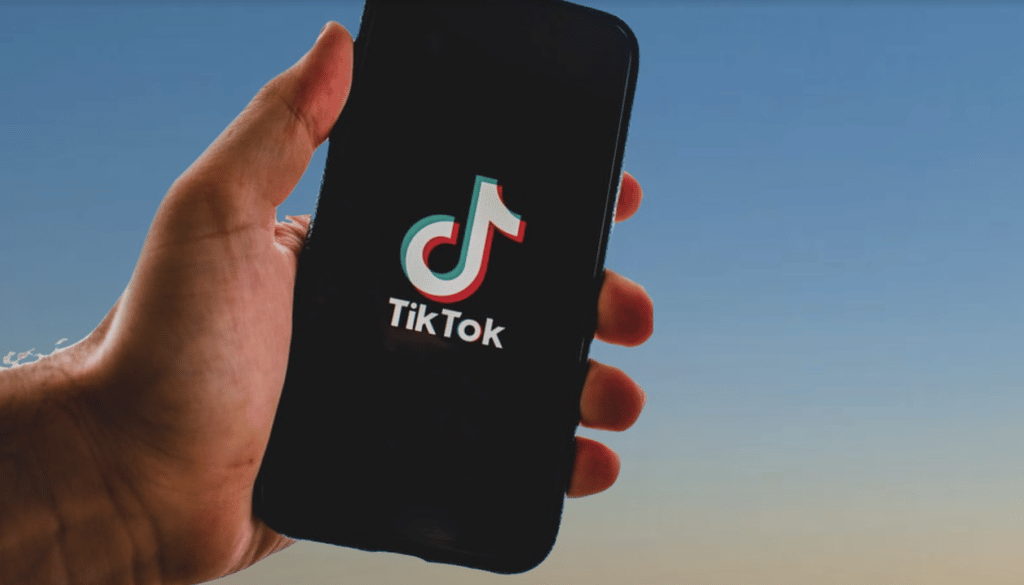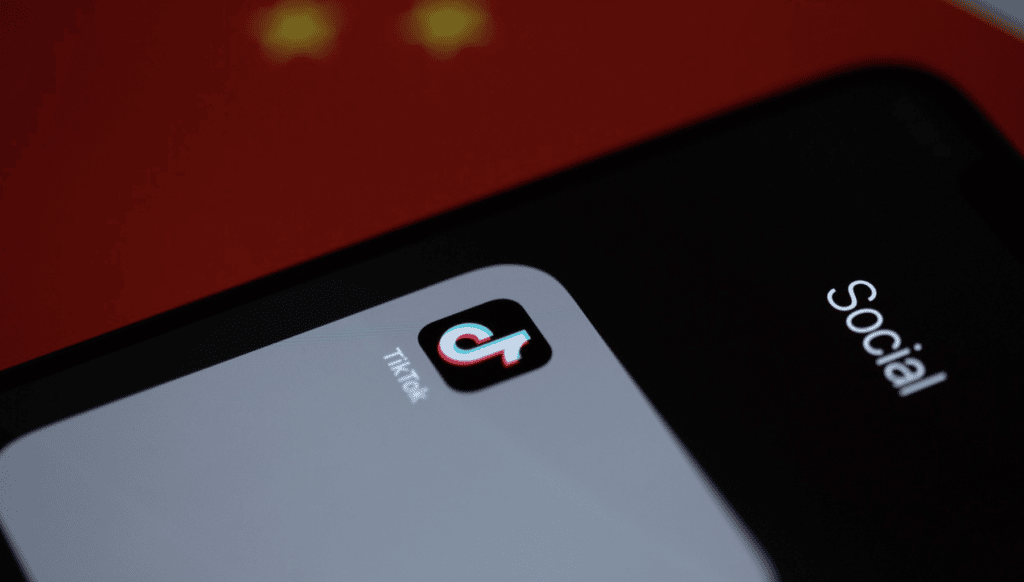By: Liam W. Cooney | Staff Writer
Endless dances and catchy songs, robot voices and Tik Tok trends. This is my little known knowledge about the social media platform that is Tik Tok, well, in terms of the actual usage of the app itself. I am often the person that is sent a Tik Tok, or told a Tik Tok trend, only to have no response as I am not a Tik Tok user. “You don’t know this?” “Oh wait, it’s a Tik Tok trend, so you wouldn’t know,” are comments I often get from my peers. I suppose I’m the old man of my generation, resistant to catch up with the times, because I am one of the few individuals amongst my crowd that has yet to hop on the social media wave of Tik Tok, which has skyrocketed since the age of Covid-19. Well, I’m not the only one. My close friend, Calley Marcarelli, said this to me when I told her about this article:
“I honestly think we’re the only two people at this school who don’t have Tik Tok, Liam!
This made me laugh. Calley and I, as you will see, are very much the minority.
According to Omnicore, Tik Tok, since its conception in 2016, has seen 2.6 billion downloads, with a current 1.1 billion active users. In the United States, 138 million total downloads, 80 million active monthly users, 62% of those users being within the ages of 10 – 29. 60% of these users are female, 40% male. This data comes straight from the source, Tik Tok, validating many of the preconceived notions myself and many others may have about user demographics, being that it is an app incredibly popular for young people from tweenhood to young adult stages.
Tik Tok’s rise rapidly accelerated just before, during and post Covid-19 pandemic, just as Facebook downloads and active users declined. In 2018, Facebook, now known as Meta, launched its Tik Tok competitor app, “Lasso.” According to Tech Crunch, the app found a medium sized audience, a unique niche in the Android crowd of Mexico, reaching 80,000 active users. It would never capture a sizable portion of the American market. However, in July 2020, Facebook would waive the white flag, removing the app from all platforms, as it never came close to Tik Tok levels of competition.
While Tik Tok has caught the attention and social cache of many in America, it has also of late earned notable publicity and criticism over its founders and their ties to the Chinese Communist Party, a fact relatively unknown to the general public and more notably to users of the platform. Musical.ly, would be the original app founded in 2012 by entrepreneurs Alex Zhu and Luyu Yang. Longtime friends who aimed to create an educational social networking app in which users would create and share videos with one another. In 2017, the app would be sold to Chinese company, ByteDance, an internet technology company created in 2012, in a massive deal worth $1B, according to Tech Crunch. Headquartered in Beijing, the company was founded by highly publicized Chinese entrepreneur Zhang Yiming, who is also known for the creation of one of China’s largest news platforms, Toutiao. On August 2nd, 2018, ByteDance chose to merge the two accounts, Musical.ly and Tik Tok, into one social media platform, given the singular title of “Tik Tok.”

According to the National Bureau of Statistics of China, China, officially known as the People’s Republic of China, is a nation of just over 1.4 billion people. Its economy is one of the strongest in the world, with a 2021 GDP (gross domestic product) of just under $18 trillion, growing exponentially since the turn of the century. A Communist nation since the 1949 Chinese Communist Revolution under Mao ZeDong, part of the worldwide “red scare,” a wave of Communist turning nation states, China is the single largest economically socialist nation in the world, with others in the region emulating, such as North Korea and Laos. By definition, its businesses do not have independent control, therefore large corporations are more so the norm, and those corporations must have a stated benefit to the betterment of the state. In China, that extends to a tech company such as Byte Dance.
A November 2020 60 Minutes segment narrated by journalist Bill Whitaker takes a deeper dive into the criticism of Tik Tok, attempts of Congressional control, as well as a downplay of the larger issue, from Tik Tok representatives themselves. Click here to view the segment.
The most startling fact within the piece involves the fact of parent company Byte Dance having to report to the Chinese government their user information and data. This user data that is collected by the app includes access to cameras, microphones, photo albums, even as far as “key-stroke recognition,” something Kara Frederick, director of the Tech Policy Center at the Heritage Foundation, labels as “extremely invasive”. Frederick assisted in Facebook’s creation of their counter terrorism agency after 6 years at the Pentagon. Before that, she worked as a targeter for special operations in Afghanistan. Even Frederick (with her experience at tech giant, Facebook), admits to the collection of private and intrusive personal data of social media users. Yet, she makes the point that the fact that Beijing based ByteDance, the one collecting this data, is not an American company and is therefore a much more potent threat. She finishes her testimony by noting how Gen Z is “constantly living” on these platforms, and that having a foreign competing nation having access to this amount of data is a real generational parasite.
This point is a crucial one to keep in mind. Many know and willingly submit to allowing apps such as Facebook, Instagram or Snapchat to have access to basic data, such as camera roll and microphone. We do not necessarily grant access to key-stroke censoring, nor are any of these competing companies, backed by parent companies of a competing Communist nation, in which our personal data could be stored and used against us. Facebook and Instagram (bought for $1B in 2012) fall under parent company Meta, while Snapchat falls under parent Snap.Inc founded in 2011. Therefore, Byte Dance’s Tik Tok uniquely stands as the first and only foreign social media platform to infiltrate and grab hold of the American audience.
As for action by the U.S. Government and Congressional leaders, Missouri Senator Josh Hawley (R) is one of the key adversaries of banning Tik Tok in the United States. In the 60 Minutes piece, he explains how and why Tik Tok has been able to take off in the U.S. as a foreign platform, noting their incredibly complex and unique artificial intelligence (AI) algorithm. Hawley has been the largest voice on the overreach and data collection of big tech, looking into companies such as Apple, Facebook, and Tik Tok. A recent sub committee hearing organized by Hawley and his staff resulted in Tik Tok representatives failing to appear, Hawley labeling this as them “having something to hide.”
Hawley and a number of other government figures, including former President Donald Trump, have demanded the app be banned in the U.S. so long as its parent company remains as ByteDance. According to The New York Post, late in the Trump administration, a deal to sell the U.S. version to tech company, Oracle, fell through after Joe Biden’s 2020 victory, as well as (and perhaps raising an eyebrow here) the Chinese Communist Party’s blocking of the release of the app’s proprietary algorithm formula. This essentially, what caters and creates users “For You” pages, marketing to users exactly what they are looking for.

Tik Tok Chief Operating Officer and former YouTube executive Vanessa Pappas downplays all these supposed threats in the 60 Minutes piece, calling the app “an opportunity for authenticity.” She then recognizes Trump’s executive order mandating the sale of the app as “without due process.” Further noting how Tik Tok has engineers who code and maintain its unique algorithm in forty-eight countries around the globe, not simply in China.
So, with a lot of numbers, information, and interview testimony layed out, I shall now give my own scoop on this incredibly popular app that is Tik Tok. First of all, I can see why so many individuals have downloaded and become active users of the platform. From what I can see, and from about the two to three videos I am sent daily by friends, it seems like a highly entertaining platform. So much so, at times I have been tempted to download it. My initial thought when it gained popularity was along these lines, I would say to myself and others, “I honestly want to get it, but I just know I would enjoy it so much and it would become yet another app I waste time on.” As time has gone on, my current answer for steering clear of the app would be, “I do not want my personal info shared with China, and I don’t want to be a part of that larger issue.”
Yes, I do feel Tik Tok is an incredible threat to American privacy and user info. I see so many individuals spending incredible amounts of time and energy into an app that does not truly hold the purpose “to inspire creativity and bring joy,” as the company’s mission statement reads. Rather, it produces an immense profit (as all social media platforms/businesses attempt), more pointedly to co-conspire with the interests of the Communist Party. Co-conspire because they have to, owned by ByteDance, in a nation of governmentally controlled big business. China’s domestic version of the app is called Douyin, and it serves the purpose of educational videos and curiosity, caters its services similarly to young people, and has a daily time limit of forty minutes per user. America’s version has no time limit, and pushes what I would say can be classified as “non-educational” instruction, oftentimes so cleverly pushing Chinese produced products.
Tik Tok is a unique threat in many ways, emulating the new war being waged between foreign competing nations, the war over cyber security and the world wide web. Famously in 2020, Russian hackers were stealing voter data and attempting to meddle with the 2020 election. More recently reported in early January 2023, it came out that a Russian hacking firm known as “Cold River,” attempted to hack into three U.S. nuclear laboratories this past summer. Tik Tok, of course, does not need to criminally “hack” into user iPhones and tablets to uncover their personal data. That information is simply available to the perpetrators, the Chinese Communist Party. A reading device in the pockets of millions of Americans, through the medium of an app with the mission of creativity, self expression, and entertainment, is quite a clever mode of production for those who seek the data of unsuspecting Americans.
So in summation, yes, I do feel as presently constructed Tik Tok, under control and supervision of parent company ByteDance, should be banned in the United States. It must be sold to a U.S. backed firm that will be more transparent and honest with user data collection.
The University of Texas-Austin, as well as Texas A&M, have been the two most recent public institutions to ban the use of the app under their WiFi servers, with other public schools in states such as Iowa, Oklahoma, and South Dakota following suit.
While I recognize the ramifications this may play along the lines of digital freedoms and censorship, I truly believe Tik Tok should be declared a national security threat; a threat that so many users are incredibly naive of, largely through no fault of their own.
I will end this article by sharing a recent Forbes magazine article explaining that at present 1 in every 4 Generation Z Americans aim to be an influencer when they grow up. A similar study conducted in China, noted that the highest-ranking occupation for Gen Z aged Chinese students was to be an astronaut. At present polling, it doesn’t take a lot of conceptualization to determine which nation’s youth will better serve them in an effort of future economic and technological progress.
Photos from Pixabay.com














